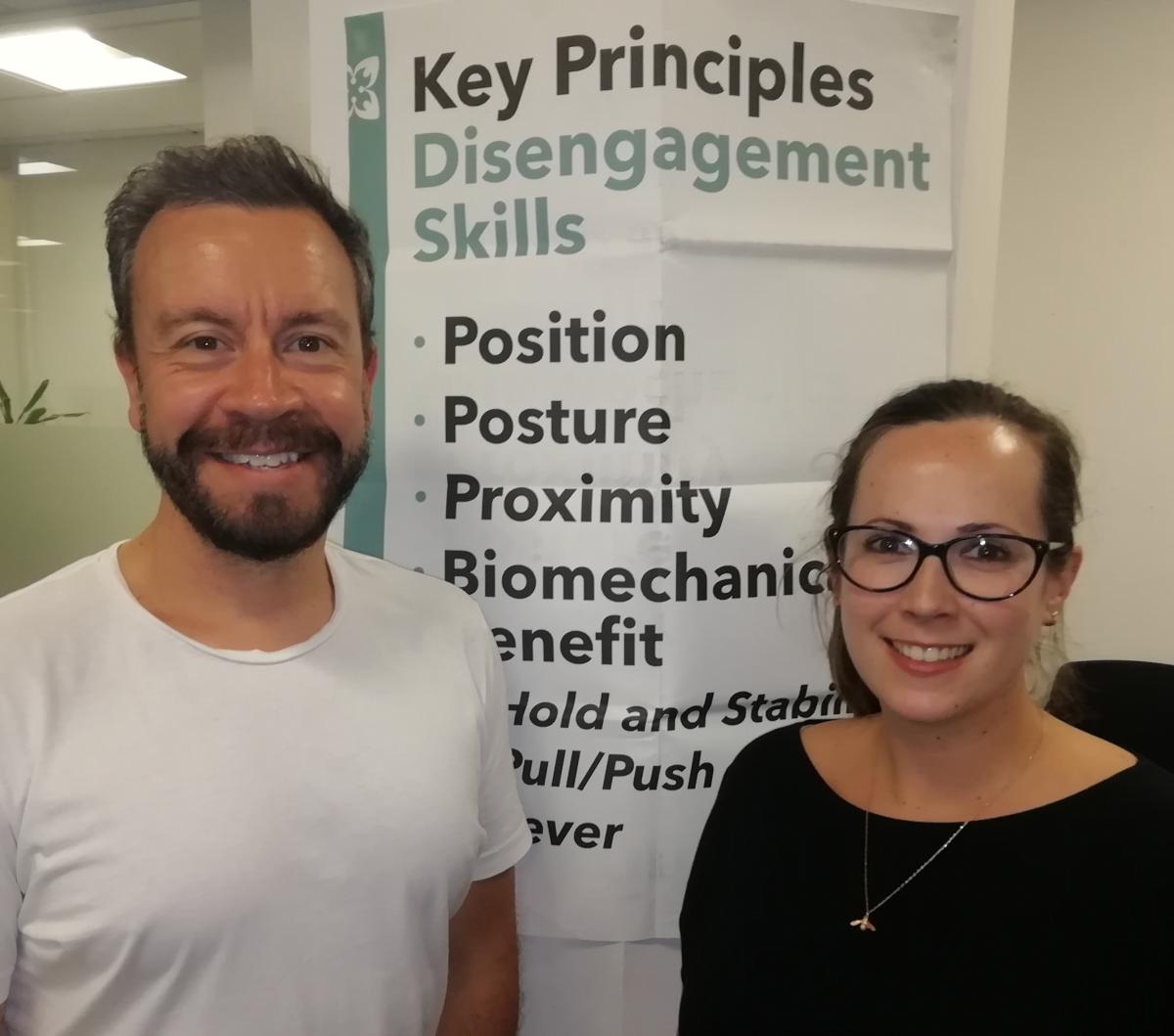60 seconds with... Harriet Beard and Ben Clarke

Harriet Beard and Ben Clarke discuss the challenges of their job in the Emergency Department at the Royal London Hospital and why they decided to become Managing Actual and Potential Aggression trainers to support other staff in safety at work.
What is your role here (job title/where do you work) and what does it involve?
Both Harriet and Ben work in the Emergency Department at Royal London Hospital, which is the busiest Major Trauma Centre in Europe and routinely sees over 550 patients per day. Harriet is a Senior Sister and Ben is a Consultant, so both have had significant experience in managing acutely unwell patients as well as the acute day-to-day issues affecting people in Tower Hamlets. A typical shift will involve oversight of the department patient flow, care of acutely unwell patients and managing the needs and wellbeing of staff who are on shift. Due to the nature of the work and the patient group, it is common to be managing patients of all ages, from multiple different backgrounds who all have individual needs and concerns. An unfortunate aspect of this is that staff and other patients are routinely exposed to both violent and aggressive behaviour; this is a daily occurrence and these episodes will sometimes occur multiple times on busy shifts such as Friday and Saturday nights.
How long have you worked at Barts Health?
Harriet has been with Barts Health for the last five years and Ben has worked here for six years in the pre-hospital field with the air ambulance as well as in the emergency department.
What do you like about your current team?
The team in the Emergency Department is extremely cohesive and close-knit. The very nature of the work, being often stressful, busy and occasionally high-risk ensures that there is a close bond amongst all the staff. One of the things that is most positive is that there is the expectation for everyone to ‘muck-in’ no matter their background or grade and this makes the emergency department a friendly and exciting place to work!
Why did you want to be a MAPA trainer?
We wanted to undertake MAPA training because throughout our careers we have become accustomed to the fact that our very work exposes us daily to patients for whom behaving in an aggressive or violent manner is the norm. We have also both worked in emergency departments in the UK and in Australia and have experienced staff assaults and the destruction of property in the department. No-one should be exposed to this, let alone expect it and it seemed sensible to ensure that we all had access to training and de-escalation techniques that assist with diffusing aggressive situations and also maintain staff safety; being able to teach others these skills is an added bonus!
What surprised you about the course/how will it change your practice?
The course was surprisingly informative around prevention of aggressive behaviour becoming violent. There was a great deal of information around recognition of the agitated patient and de-escalation techniques. However, the disengagement training was excellent as well. It will make me more aware of my surroundings, the general ‘mood’ of the department and increase my awareness of those patients who are potentially displaying risky behaviour… Hopefully, it will allow me to address this before it becomes a problem!
What benefit do you think your colleagues will get from the course?
I hope that through MAPA training staff will feel empowered when faced with challenging behaviour. Colleagues undertaking the course are going to find this incredibly useful in terms of recognising the factors that lead to violence and aggression and being able to address them in a timely manner. They will also be able to de-escalate situations which are rapidly becoming dangerous. Ultimately though, colleagues will have an added confidence in their work area with the knowledge that they will be better prepared to face their day-to-day work with a greater appreciation of their own and other people’s behaviour.
Book onto the 1-day MAPA training here.
Harriet Beard and Ben Clarke
Emergency Department Senior Sister and Consultant
